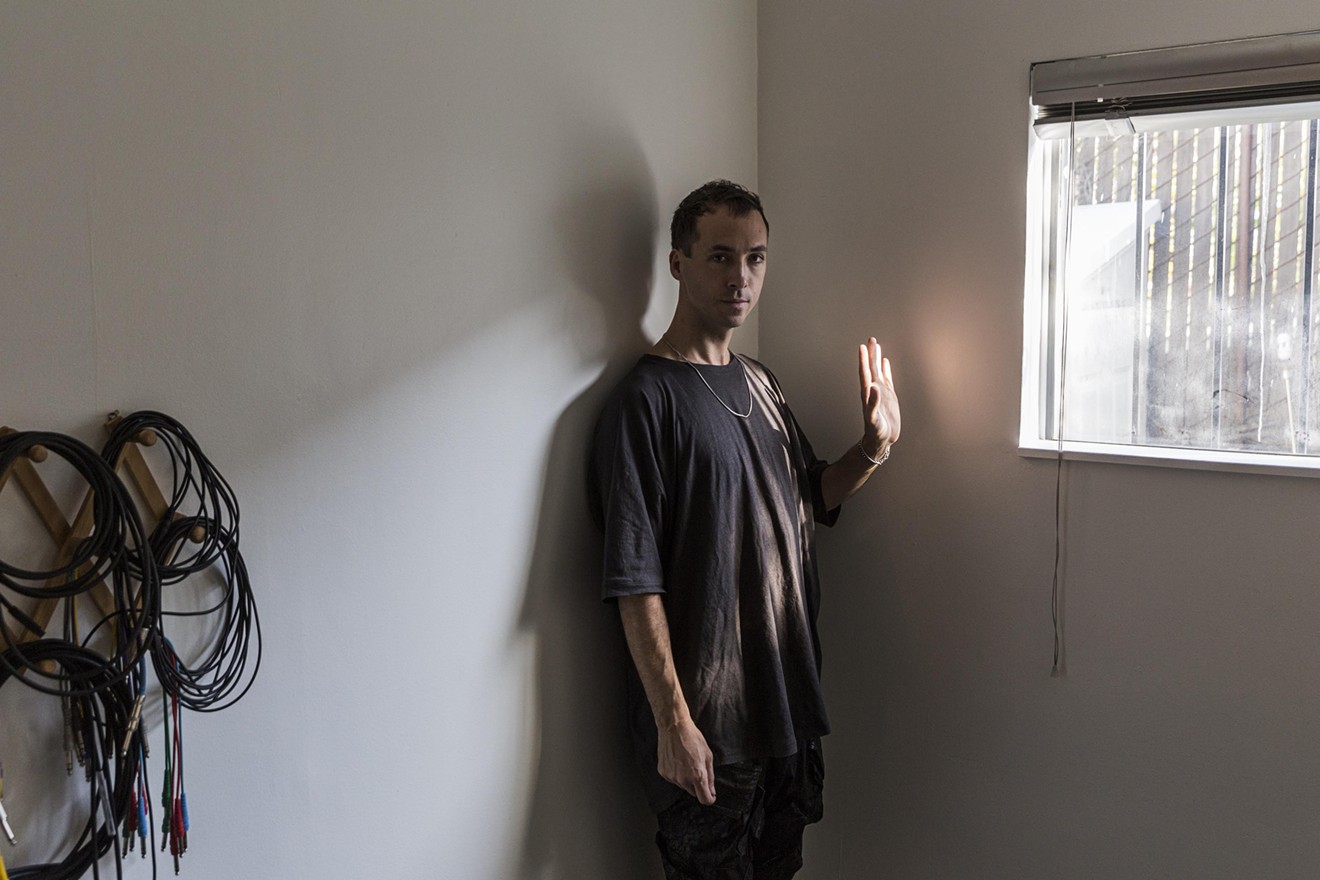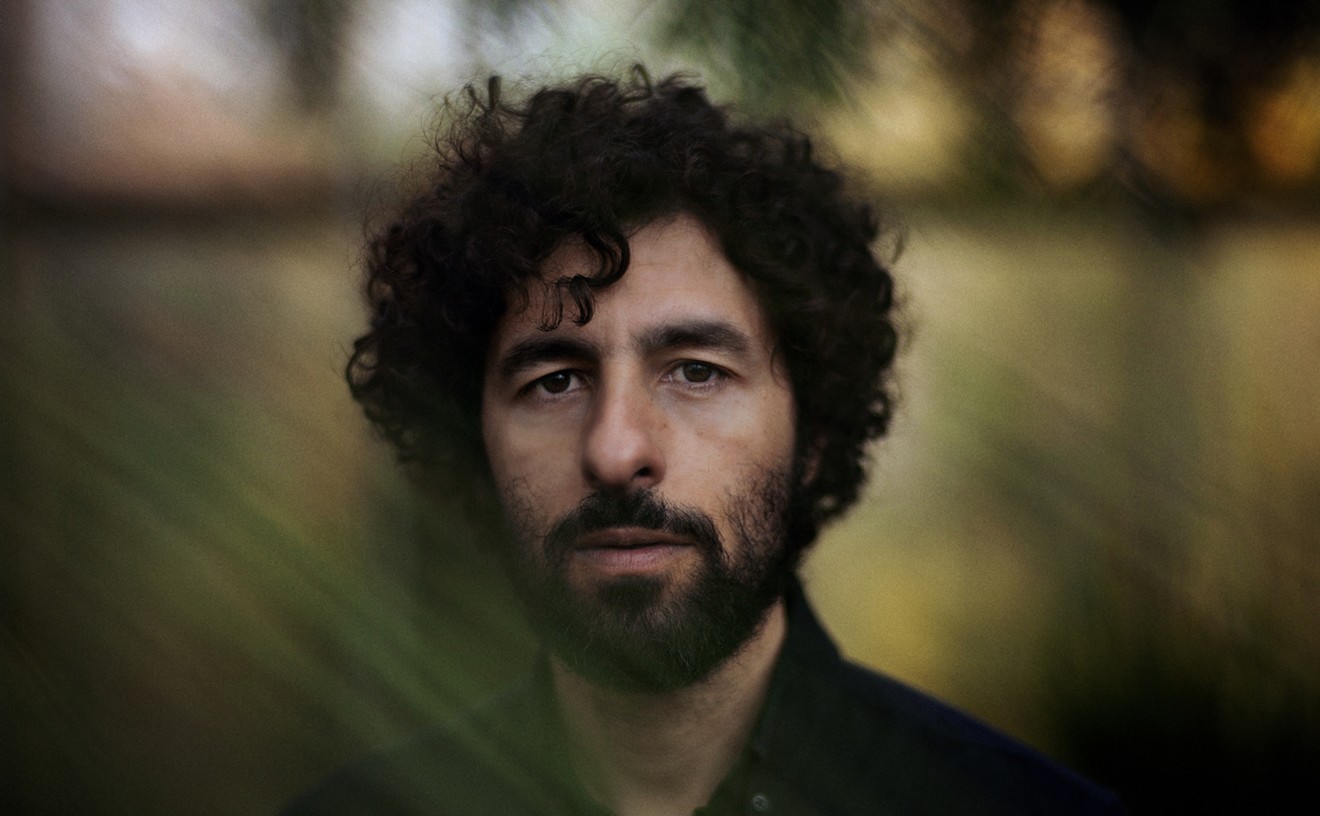"I'm in and out of there in 24 hours. I wish I could stay and get some vitamin D," he says over the phone. "You get sick sometimes because you're getting three hours of sleep five days in a row. It's a hard thing sometimes, definitely, but it's also a great luxury. You know, there's no war in our society, and I go on low-cost carrier flights to play music. It's a privilege, and I'm definitely not complaining."
Give Hecker's latest record, No Highs, a listen, and you might think he's got a lot to complain about. Much of the record's marketing has positioned it as a statement against the popularity and commercialization of ambient music as a genre and movement. A description on the artist's Bandcamp page calls it "a beacon of unease against the deluge of false positive corporate ambient currently in vogue," while a New York Times profile of Hecker that ran before its release declared in its headline that the artist "Helped Popularize Ambient Music. He's (Sort of) Sorry."
Yet even from the start, Hecker's music never seemed to fit into the popular conception of ambient music. Like fellow electronic musicians William Basinski and Oneohtrix Point Never, his reputation as a composer grew in the 2000s and early 2010s because his music wasn't anonymous and soothing, ideal for the white noise or yoga playlists it now gets shoehorned onto. Records like Ravedeath, 1972, and Virgins were thrilling because they demanded attention, building layers and layers of sound out of various samples, melodies, and chord structures, blending acoustic and digital elements, blowing the collage of sound into your ears and forcing a revelatory experience. They aren't necessarily pretty, but they are guaranteed to make the listener feel something powerful, deep, and hard to grasp.
"As somebody who meditates a lot, I didn't want my music to serve as a simple meditation. It was like a deeper expression of being human and its complexity," he says. "Ambient is a reflection of the musical world we live in, and it's too on the nose. It kind of serves the psycho-therapeutic demands of a society that's used to popping Xanax. It has some kind of expedience, like music in a streaming society where everything's just a cloud catalogue. It becomes a form of another efficient, utilitarian type of medication."
Hecker never intended to make a big statement with No Highs. After several more conceptual records exploring choral music (Love Streams) and Japanese classical music (Konoyo and Anoyo), as well as soundtrack work on Brandon Cronenberg's film Infinity Pool, he just wanted to get back to basics, especially after the long, stressful pandemic. The Times profile describes him decamping to Oaxaca over the winter of 2022 to generate sounds and find "moments that felt new, even hallucinatory." He then returned home to Montreal to hash out the record with collaborators like Colin Stetson, the saxophonist famed for his dizzying melodies.
"I think this period was just trying to get back to the spirit of making music, fast and kind of dirty and quick, and not overwrought and overthought," he says. "also in the backdrop of a society that devalues music, arguably, and why we invest into music that gets thrown into a platform."

"I think this period was just trying to get back to the spirit of making music, fast and kind of dirty and quick, and not overwrought and overthought," Tim Hecker says.
Kranky Records photos
If No Highs doesn't necessarily respond directly to this, it definitely feels subtly reactive to it. Pulsating synth beats and groaning melodies wrought with unease carry through the record. Tracks have names like "Total Garbage," "Sense Suppression," "Anxiety," and "Monotony." A few moments feel like a commentary on ambient clichés. "Living Spa Water," with its light, floaty synth drone and twinkly, generically Asiatic zither melody, sounds like the seductive, commercialized evil twin of Konoyo's cacophonous gagaku music. "Winter Cop" could slot in comfortably on one of Aphex Twin's Selected Ambient Works albums. But again, that's not what Hecker was thinking when he made the album.
"The whole ambient thing was just something I started talking about after the record was done. I wasn't really trying to make a statement on ambient music at all," he says. "I just made music, and I'm like, okay, this pulse-driven, metronomic, grayscale thing, I'm just gonna go all in on it and make 40 minutes of it and put it out because I haven't done anything for a couple of years. And this has shape, and it adds something a bit different to my catalogue. And, you know, it felt right. And then through talking about it a little bit and writing a press release, a lot of the ideas around it just accumulate on top."
Tim Hecker. With Sleepy C and Duun. 8 p.m. Saturday, November 11, at the Ground, 34 NE 11th St., Miami; thegroundmiami.com. Tickets cost $20.39 via dice.fm.












